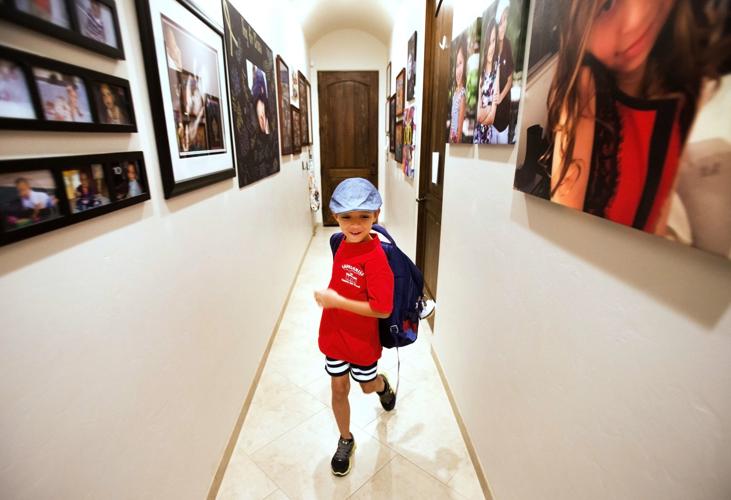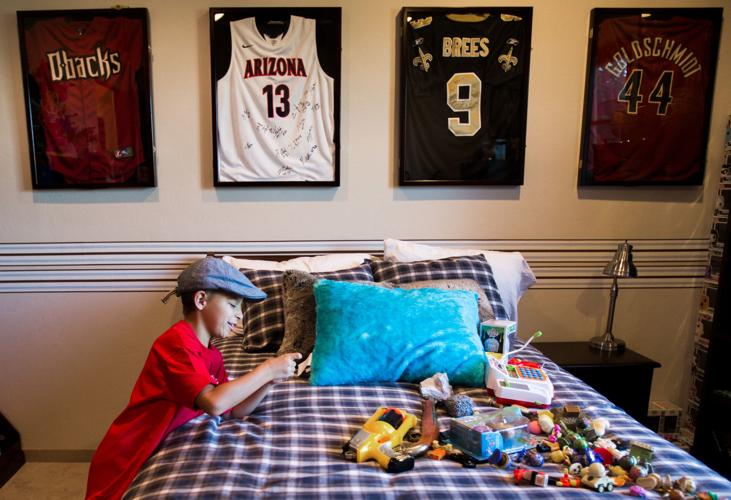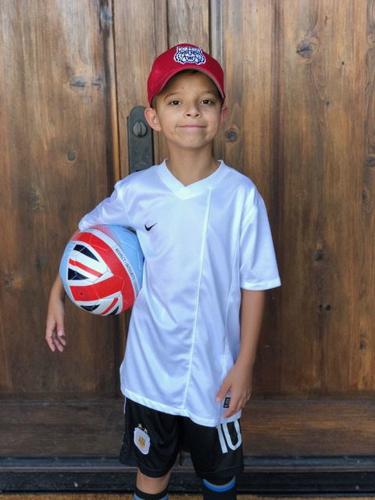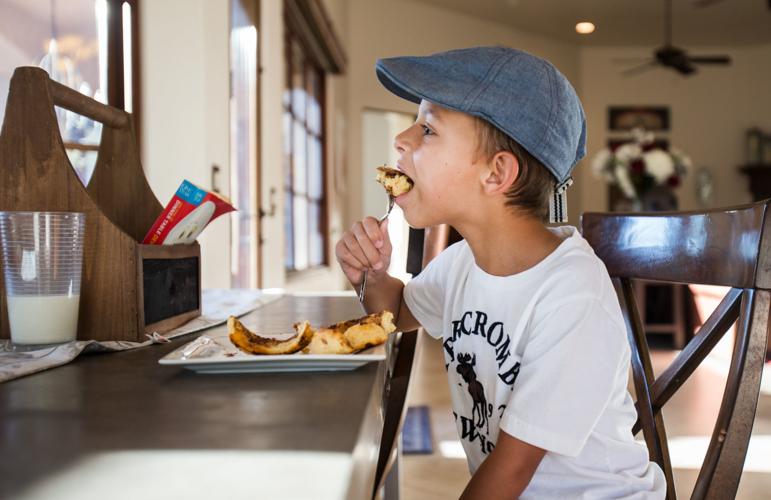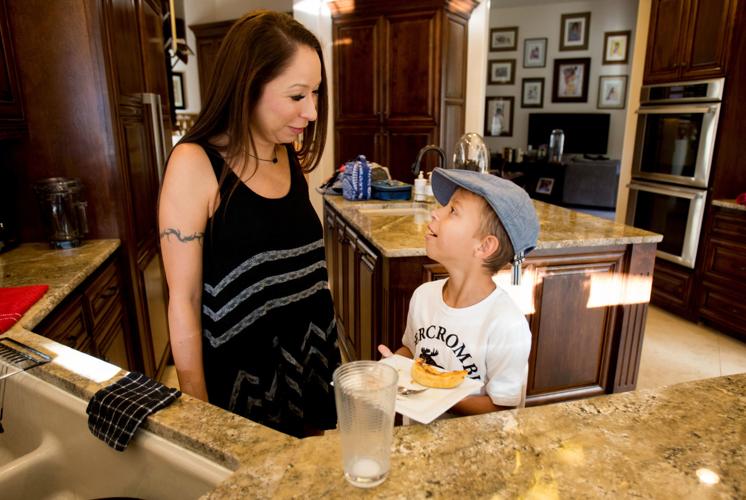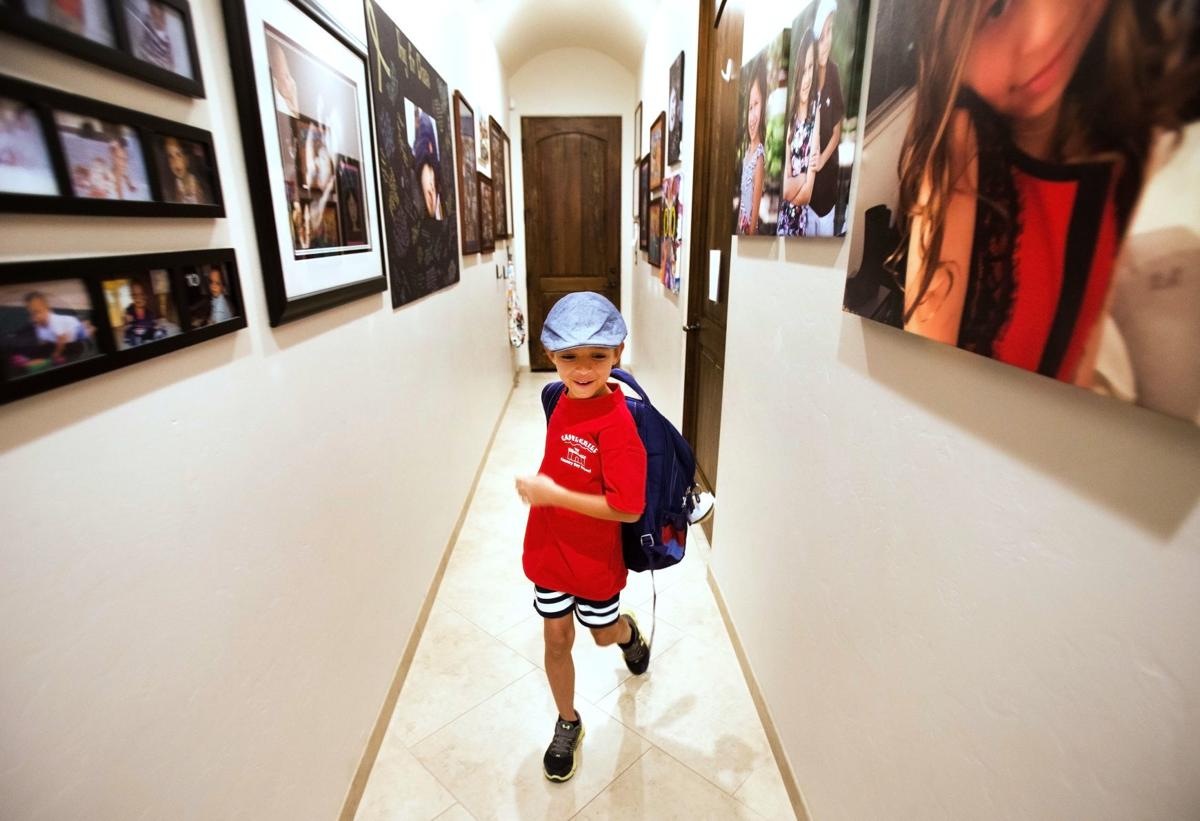Angel Lock’s son was recovering from a rare brain tumor when the University of Arizona men’s hockey team made him an honorary teammate.
“The guys,” as Chase Lock called them, got him excited about sports and, especially, about being part of a team.
“When I saw how that impacted him,” Lock said of her son, then about 7, “I wanted to help him be part of something.”
That’s what Lock was aiming for when she registered her son, now 10, for a spot with a local soccer club.

The American Youth Soccer Organization apologized for Chase’s exclusion from an AYSO league.
What happened is still difficult for her to grasp, but she knows it has to do with how the chemotherapy robbed Chase of his hearing, how the brain surgery compromised his sight.
Lock says she was clear about her son’s challenges when she signed him up with the American Youth Soccer Organization, or AYSO. She also explained he has adjusted exceptionally well, that he played soccer in a summer league without a hitch, that he is a very determined boy.
She submitted the paperwork, but then she didn’t hear anything. She called to check. Initially, she says the person on the AYSO line suggested her son play on a team for children with disabilities. She explained, again, that he was capable of playing in their league and ended the call understanding he’d be placed on a team.
They were invited to a “meet your coach” event a week ago, and the excitement increased when they arrived to find some of Chase’s schoolmates there.
And then they stood and waited, mother and son, as the players’ names were called off, one by one — all of the names, she says, except Chase Lock.
She asked if there had been some mistake, if they somehow accidentally left his name off the roster? She was simply told the teams were full.

Chase Lock was 7 and recovering from brain cancer when he became an honorary member of the University of Arizona hockey team.
“Deepest apologies”
The American Youth Soccer Organization’s national office in California called what happened “an unfortunate misunderstanding,” and said the Lock family will be fully reimbursed for both local sign-up fees and AYSO national membership fees.
“AYSO extends its deepest apologies for this unfortunate incident and acknowledges we have areas where we could have provided better service to Mrs. Locke (sic) and her son, that are more consistent with AYSO’s vision and mission to provide a positive, fair and fun soccer experience for all our youth players,” a spokeswoman, Amanda Sotomayor, said in an email to the Arizona Daily Star on behalf of AYSO.
Tucson’s AYSO club, called AYSO Region 350, did not respond to interview requests from the Star.
Lock’s son should have been allowed to play, said J.J. Rico, an attorney and CEO of the Arizona Center for Disability Law. The Americans with Disabilities Act requires that “reasonable accommodations” be made so those with disabilities can participate, he said.
Rico doesn’t know Lock’s son, but said the fact he played with success over the summer makes the situation puzzling.
“There’s a whole
Range in the middle”
However, exclusion and misunderstandings are still common for children and teens who have challenges and disabilities, he said.
Lock, who is now researching other soccer teams, said when it comes to sports, people tend to put kids in categories at either extreme and “don’t see there’s a whole range in the middle.”
Jennifer Phillips of Vail has not yet dared to introduce sports to her 7-year-old son, who has been diagnosed with high-functioning autism, because she doesn’t trust how people will respond.
As it is, she often avoids taking him to public places because she finds what people sometimes say upsetting. Being outside in nature is his best bet, she said.
“My little guy draws a lot of attention,” she said, explaining he tends to get upset when he’s overstimulated. She doesn’t want to keep explaining to strangers that her son has autism because she doesn’t want him to overhear and start defining himself that way.
Once people know, she says people are usually “pretty cool.” Comments still get made, however, including a recent suggestion that she enlist her son in the military so he can learn how to behave.
“I react with humor and smiling,” she said, “but deep down, it does bother me.”

Underneath autographed sports jerseys, Chase Lock, 10, plays in his room before getting ready for school. His mother describes him as a determined boy.
“There’s still
a ways to go’
Children with disabilities or other challenges face exclusion and misunderstanding not just in sports, but in everyday life, said Kacey Chandler, a licensed psychologist who is on the evaluation and treatment team with the Tucson Alliance for Autism. This can be especially true when the differences are subtle.
Chandler’s work with children on the autism spectrum has led her to see that kids sometimes don’t reach their full potential simply because they are not given opportunities.
Educators and coaches don’t always have the skills or training needed to understand and assist a child who has different abilities or needs.
People who work with children are learning more about helping children with special needs, she said, but “there’s still a ways to go.”
Lock, for her part, wishes the league had not given her family “mixed messages.”
She said children — especially those with unique challenges — deserve better than that.
“When they are not given the chance, it breaks them a little bit,” she said. “It’s already hard enough. They just want to be like everyone else.”

Chase Lock enjoys a cinnamon roll for breakfast as he gets ready for school at home on Aug. 31, 2018, in Tucson, Ariz. Lock, 10, is a brain cancer survivor who lost his hearing and peripheral vision due to chemotherapy and surgery.

High-functioning kids with disabilities are often excluded and misunderstood, but U.S. law requires “reasonable accommodations” be made for them. Above, Chase and his mom, Angel.


